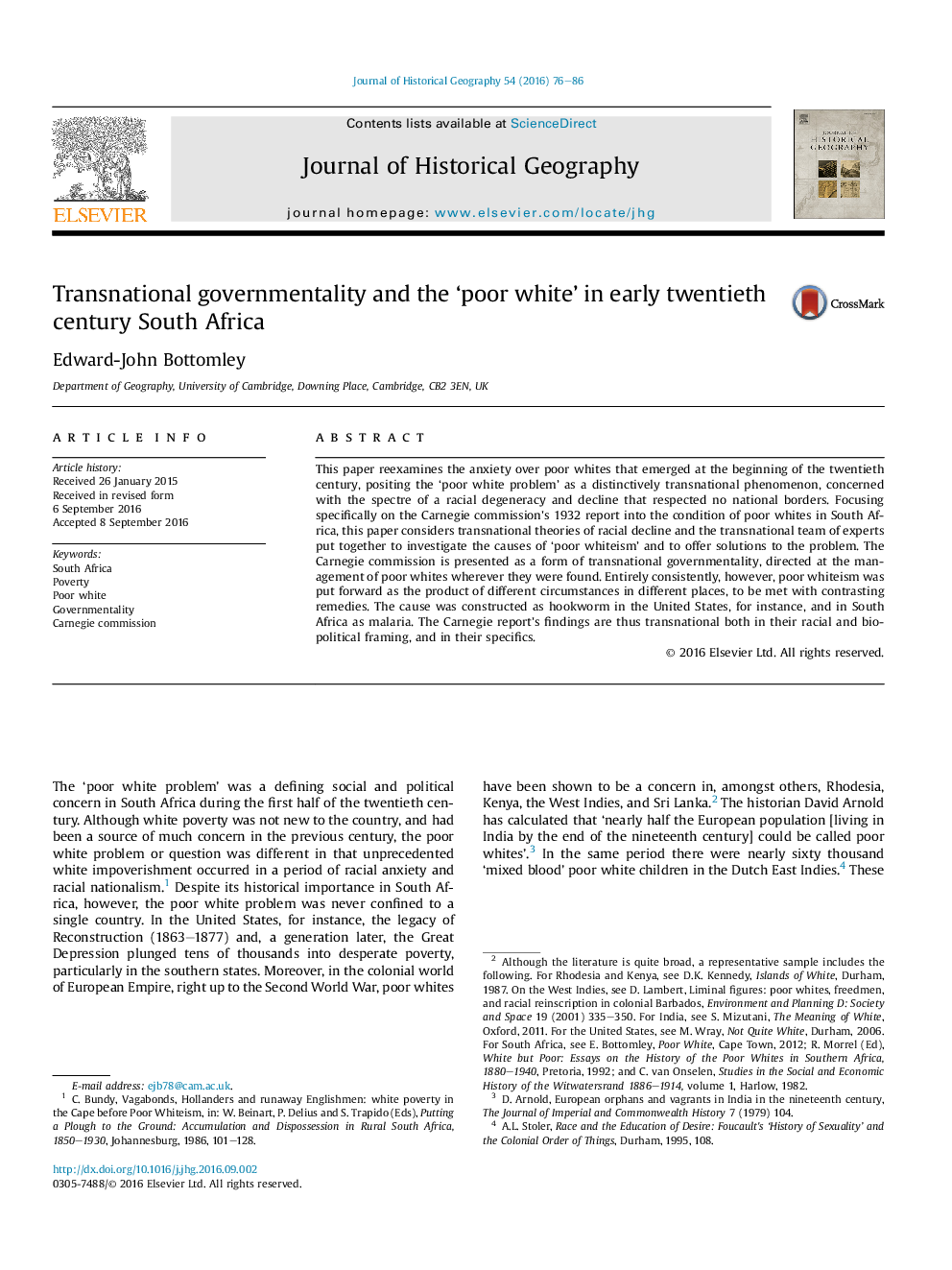| Article ID | Journal | Published Year | Pages | File Type |
|---|---|---|---|---|
| 7447206 | Journal of Historical Geography | 2016 | 11 Pages |
Abstract
This paper reexamines the anxiety over poor whites that emerged at the beginning of the twentieth century, positing the 'poor white problem' as a distinctively transnational phenomenon, concerned with the spectre of a racial degeneracy and decline that respected no national borders. Focusing specifically on the Carnegie commission's 1932 report into the condition of poor whites in South Africa, this paper considers transnational theories of racial decline and the transnational team of experts put together to investigate the causes of 'poor whiteism' and to offer solutions to the problem. The Carnegie commission is presented as a form of transnational governmentality, directed at the management of poor whites wherever they were found. Entirely consistently, however, poor whiteism was put forward as the product of different circumstances in different places, to be met with contrasting remedies. The cause was constructed as hookworm in the United States, for instance, and in South Africa as malaria. The Carnegie report's findings are thus transnational both in their racial and biopolitical framing, and in their specifics.
Keywords
Related Topics
Social Sciences and Humanities
Arts and Humanities
History
Authors
Edward-John Bottomley,
